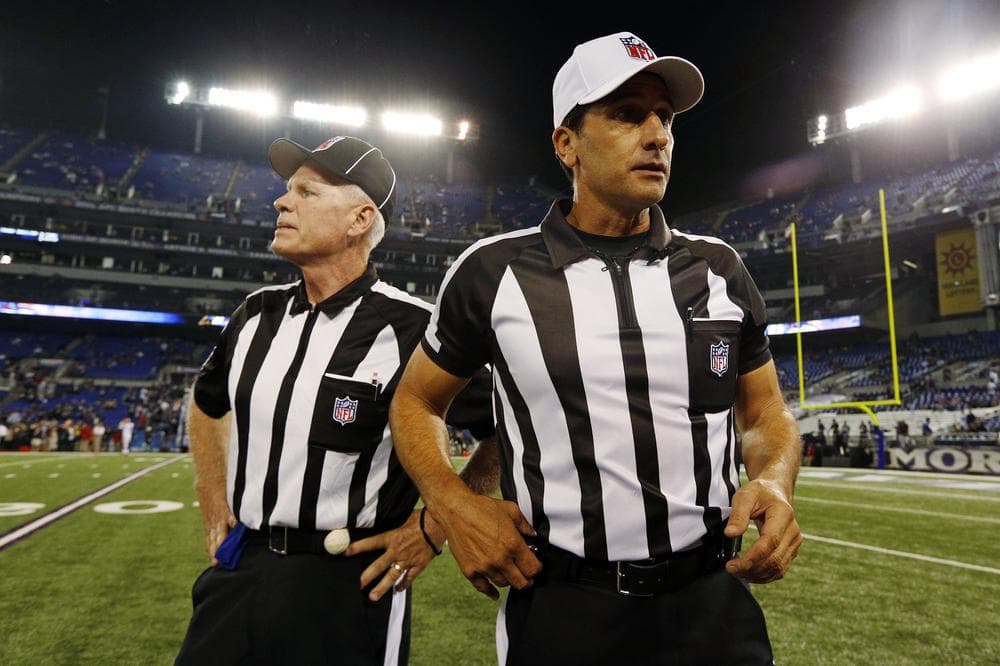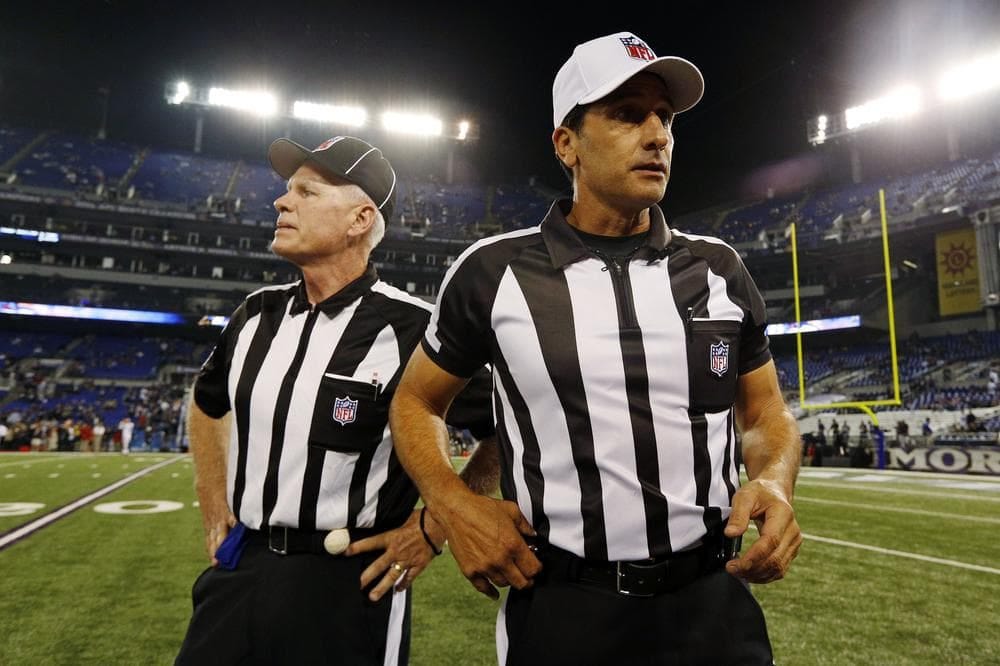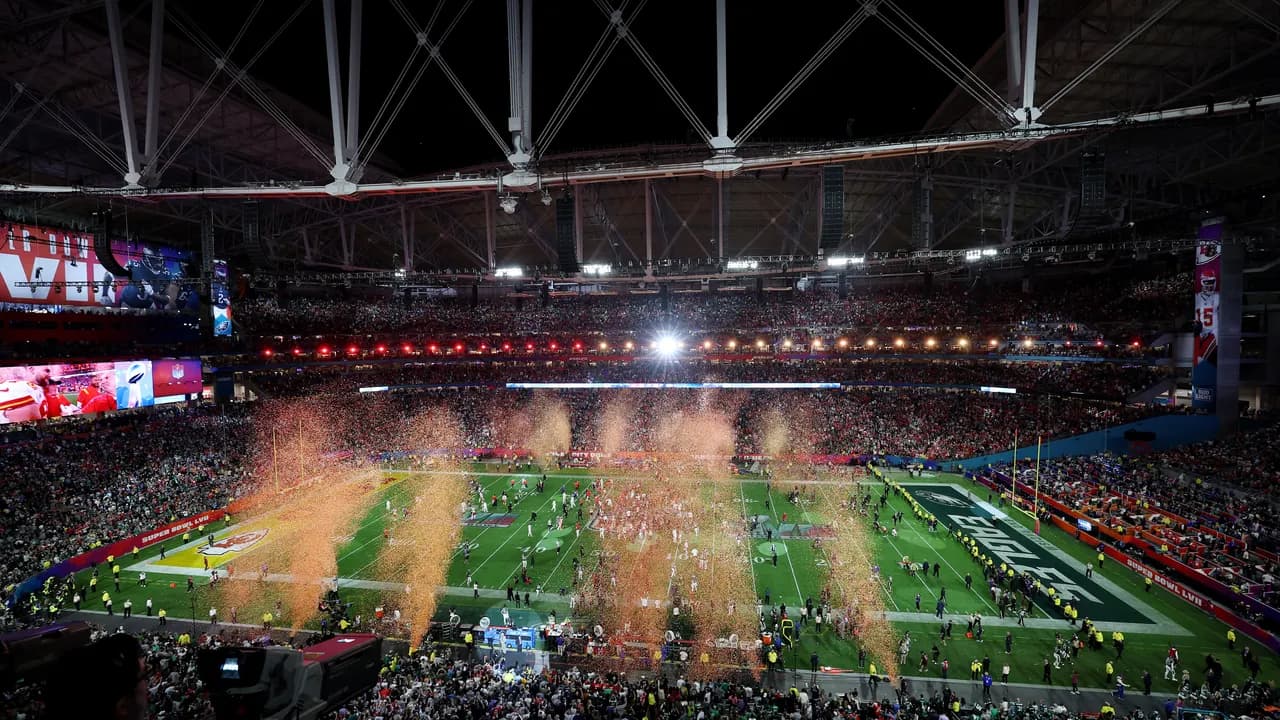How Much Do NFL Refs Make? Breaking Down Referee Salaries and Compensation
The National Football League generates billions in revenue annually, with players, coaches, and executives commanding substantial salaries.

The National Football League generates billions in revenue annually, with players, coaches, and executives commanding substantial salaries. But what about the officials who enforce the rules and maintain order on the field? Understanding how much NFL referees make provides insight into one of professional sports' most scrutinized yet essential positions.
Thanks for reading Up in The Rafters | Thought-Provoking Sports Talk! Subscribe for free to receive new posts and support my work.
Thanks for reading Up in The Rafters | Thought-Provoking Sports Talk! Subscribe for free to receive new posts and support my work.
NFL Referee Average Salary: The Financial Breakdown
While the NFL and NFL Referees Association (NFLRA) don't publicly disclose exact compensation figures, industry reports and expired collective bargaining agreements provide a clear picture of referee earnings. NFL referees earn an average salary of approximately $205,000 per year, representing a significant increase from the roughly $150,000 they made in previous years.
Thanks for reading Up in The Rafters | Thought-Provoking Sports Talk! Subscribe for free to receive new posts and support my work.
This compensation structure reflects the league's growth and the increased importance placed on officiating quality. With referees typically working 18 games throughout the regular season, this translates to roughly $11,400 per game for standard assignments.
The current compensation framework was established through a seven-year collective bargaining agreement reached between the NFL and NFLRA in 2019, which expires on May 31, 2026. When negotiations resume, both sides will likely address salary adjustments reflecting the league's continued financial expansion.
How NFL Referee Pay Structure Works
Understanding referee compensation requires examining the multi-tiered payment system the NFL employs. Officials receive a flat seasonal fee as their base compensation, supplemented by additional per-game payments for each contest they officiate.
This structure ensures referees maintain consistent income while rewarding those who work more games throughout the season. The system also accounts for the varying responsibilities and experience levels among different officials, with compensation scaling accordingly.
Experience and Role-Based Variations
Referee salaries vary significantly based on several factors:
- Experience level: Veteran officials command higher compensation than newer referees
- Specific position: Head referees earn more than other crew members
- Performance evaluations: Top-rated officials receive premium assignments and pay
- Postseason selections: Playoff officials earn substantial bonuses
The NFL's emphasis on officiating quality has led to more competitive compensation packages, helping retain experienced officials and attract qualified candidates.
Postseason and Super Bowl Bonuses
Referees selected for playoff duty receive substantial financial incentives beyond their regular-season compensation. Postseason games pay approximately $3,000-$5,000 per game, nearly double the regular-season rate.
The ultimate officiating assignment—working the Super Bowl—comes with the most significant bonus. Reports indicate that Super Bowl referees earn between $30,000-$50,000 for officiating the championship game, though these figures remain unofficial estimates.
Other crew members also benefit from postseason selections, with bonuses starting at $3,000 per game and increasing based on their specific roles and the game's importance.

Highest-Paid NFL Referees
While exact figures remain confidential, industry sources identify several referees as the league's highest earners. Brad Allen and Craig Wrolstad reportedly earn as much as $250,000 annually, placing them at the top of the compensation scale.
Retired referee Walt Anderson also earned an estimated $250,000 during his final seasons, while Tony Corrente reportedly made approximately $230,000 before his retirement. Veterans like Carl Cheffers, Bill Vinovich, and Clete Blakeman are positioned to join this elite compensation tier as their careers progress.
Diversity and Representation in NFL Officiating
The NFL has made significant strides in diversifying its officiating crews. Sarah Thomas holds the distinction as the highest-paid female referee, while Maia Chaka became the first Black woman to officiate NFL games in 2021. The league has since added Robin DeLorenzo and Lo Van Pham, the first Asian-American official, demonstrating its commitment to inclusive representation.
Full-Time vs. Part-Time Status
Currently, all NFL referees work part-time, maintaining other careers during the offseason. The league previously experimented with converting approximately 20% of its officials to full-time employees but shelved this program during 2019 CBA negotiations.
This part-time status means referees experience a "dark period" from season's end through mid-May, during which they focus on their primary occupations. The travel demands and weekend commitments make maintaining full-time weekday employment challenging for many officials.
The debate over full-time officiating continues gaining traction among players and analysts. As NFL training differs significantly from collegiate programs, some argue that professional officiating should receive similar full-time treatment to ensure consistency and quality.
The Future of NFL Referee Compensation
Several factors suggest continued growth in referee compensation:
League Revenue Growth: The NFL's expanding revenue streams, including television deals and sponsorships, provide resources for increased official compensation.
Quality Demands: As the game becomes faster and more complex, the need for highly skilled officials increases, justifying higher salaries.
Player Advocacy: High-profile players have publicly supported increased referee pay and full-time status, adding pressure for compensation improvements.
The relationship between professional sports economics and officiating compensation reflects broader industry trends. Just as the economics of the NBA influence player and staff salaries, NFL financial growth directly impacts referee earning potential.
The Value of Professional Officiating
NFL referee compensation reflects the league's recognition of officiating as a specialized, high-pressure profession requiring extensive training and split-second decision-making. While the average $205,000 salary may seem modest compared to player earnings, it represents significant growth and acknowledges the crucial role officials play in maintaining game integrity.
As the NFL continues its financial expansion and faces increasing scrutiny over officiating quality, referee compensation will likely continue evolving. The 2026 CBA negotiations will provide insight into how the league values its officials and whether full-time status becomes reality.
Understanding referee salaries provides perspective on the business side of professional football, where every aspect—from player development to officiating—requires significant investment to maintain the sport's elite status.
For more in-depth analysis of professional sports economics and behind-the-scenes insights, visit Up in The Rafters for comprehensive coverage of the business of sports.
Thanks for reading Up in The Rafters | Thought-Provoking Sports Talk! Subscribe for free to receive new posts and support my work.
More in NFL
View all


